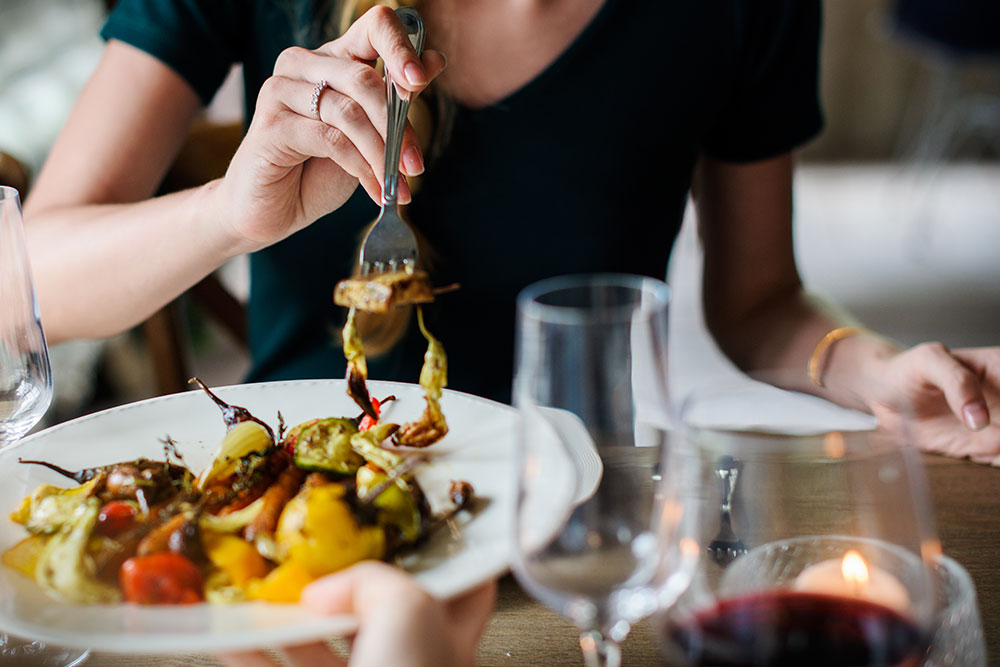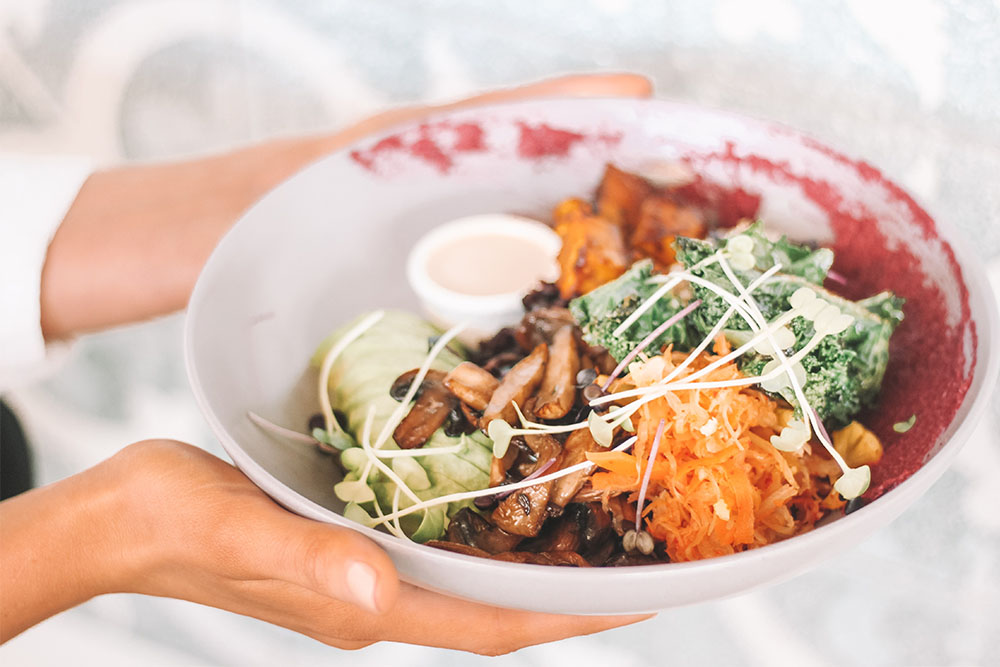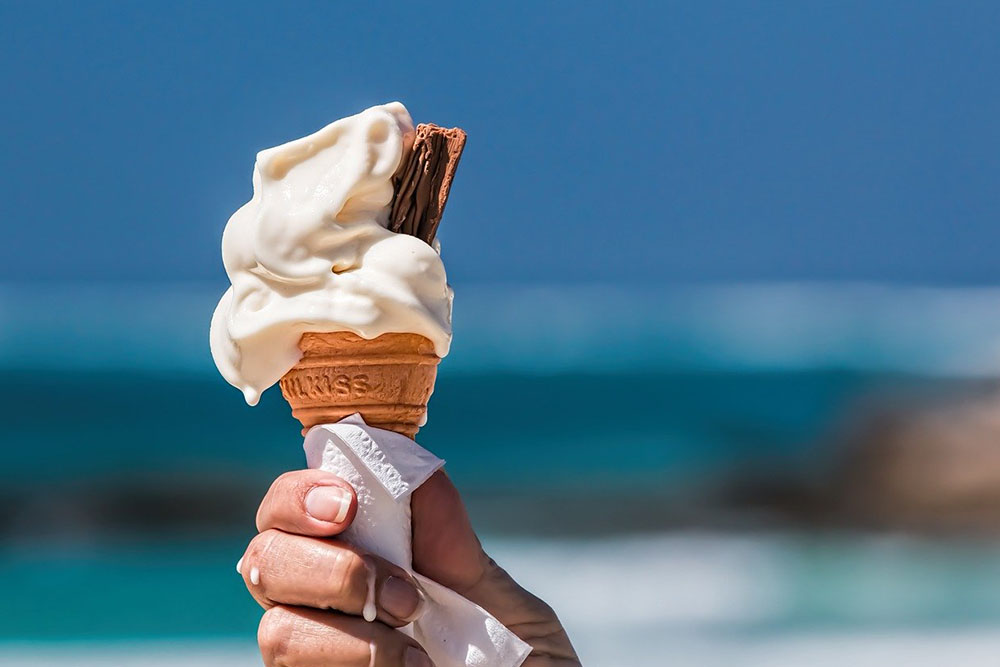6 Ways To Avoid Hunger That Leads To Overeating

Alyssa Bialowas
 Dieting and body image in sport can lead to the development of either exceptionally healthy or unhealthy eating patterns in athletes. After an intense workout I can overeat to no bounds with little to no consequences, and when I know I’ve burned enough calories to treat myself, I always do. However, it’s important to be aware of calories burned and calories you’re taking in, as this simple equation is the saving grace and secret answer (not a secret at all but one that is hard to maintain) to maintain a healthy weight.
Dieting and body image in sport can lead to the development of either exceptionally healthy or unhealthy eating patterns in athletes. After an intense workout I can overeat to no bounds with little to no consequences, and when I know I’ve burned enough calories to treat myself, I always do. However, it’s important to be aware of calories burned and calories you’re taking in, as this simple equation is the saving grace and secret answer (not a secret at all but one that is hard to maintain) to maintain a healthy weight.
As we play sports and engage in physical activity, especially circuit and high intensity interval training (HIIT), we burn a lot of calories and our increased metabolism enables our bodies to burn more fat while we rest, meaning I’m pretty much hungry all day…
Related Article: Should I Eat Before Or After My HIIT Workout?
Try these 6 tips to avoid overeating and maintain a balanced diet and a healthy weight.
1. Fill yourself with protein and fiber!
I listed this as number one because it is my number one rule to keep me from overeating throughout the day, and from craving unhealthy snacks. I also find that protein and fiber fill me with energy and brainpower, making me feel more alert, which has an impact on my day and on the quality of my work. Nutritionists recommend making protein 30% of your diet and food intake for maximum benefit and maximum health results. It takes your body longer to digest protein, leading to feeling full and satisfied for longer periods of time. To keep yourself from snacking and grazing throughout the day, add fiber-rich foods to your diet such as beans, chic peas, lentils, salad greens, peas, and healthy sandwiches.
2. Drink Water.
A constant state of sufficient hydration helps make us feel full. Our bodies have a tendency to mistake dehydration for hunger, causing us to think we’re hungry and reach for a snack, in situations where we could just reach for a tall glass of H2O. When we’re dehydrated, our energy is completely tapped, which mimics the feeling of hunger, tricking our brain into craving food. Studies show that drinking water right before a meal can keep us from overeating. Add a little slice of lemon, cucumber or mixed berries to spice up your water.
3. Reduce your overall stress level.
When I’m stressed, I tend to crave food and eat, and then overeat. Overeating then leads me to feel crappy and stressed, reinforcing this cycle of stress. When your body is stressed, it produces a steroid hormone called cortisol, which can trigger cravings for sugary foods and snacks. No matter how many things are going on in your day and in your life, an important step to reduce stress is to get your breathing in check. Breathe deeply, and breathe in for a count of four, and out for a count of eight, and repeat until you feel your stress begin to decrease. Create some downtime in your busy schedule – go for a walk outside, read a book, get a massage, chat with a friend, and when all else fails, exercise! You know you want those endorphins.
Related Article: The Surprising Benefits of Mediation
4. Slow it all down.
Busy schedules make us feel stressed, being stressed makes us crave unhealthy foods, and when it’s mealtime, we tend to rush through our meals so we can accommodate our busy schedule. This cycle, and our tendency to rush through a meal can actually lead us to overeat as we haven’t given our stomach enough time to realize that it’s full. You’ve heard the myth that increased chewing leads to eating less, and it’s actually true. People that chew their food more than the normal amount have been studied to eat at least 10%-15% less food while they eat. In addition, take frequent pauses between bites, try taking sips of water between bites, put down your fork after a few bites, and have social meals filled with conversation. (Journal of the American Dietetic Association, chewing while snacking on pizza rolls)
5. Cut those portion sizes!
The size of a dish is a cognitive phenomenon as humans are easily tricked into filling a plate, bowl, and tray with more food due to their size. Research shows that people eat, or at least attempt to eat their entire plate or bowl, eating about 92% of what’s on their plates no matter how packed the plate or bowl. No matter the meal context, attempt to decrease your portion size to half of what you think you need.
6. Don’t skip meals and don’t starve yourself!
Skipping meals can actually have the reverse effect that you want it to have, and leads to overeating and excess weight gain. When you skip a meal, your blood sugar level drops, causing your body to crave sugar in food. When your blood sugar level stays low, you tend to overeat all day. Eat three nutritious meals a day that have a healthy mix of protein, fat, and carbohydrates, and you will experience the benefits of feeling full for longer periods of time. The 4-hour rule states that you should aim to leave 4 hours between big meals. Between meals, if you feel the need to snack, snack on something filled with protein or fiber. Experts recommend eating a 250-300 calorie snack about two hours before eating a big meal or dinner.
So there you have it, 6 tips and tricks that will stop you from overeating!
Related Article: Counting Calories May Prevent Overeating
You Might Like:













